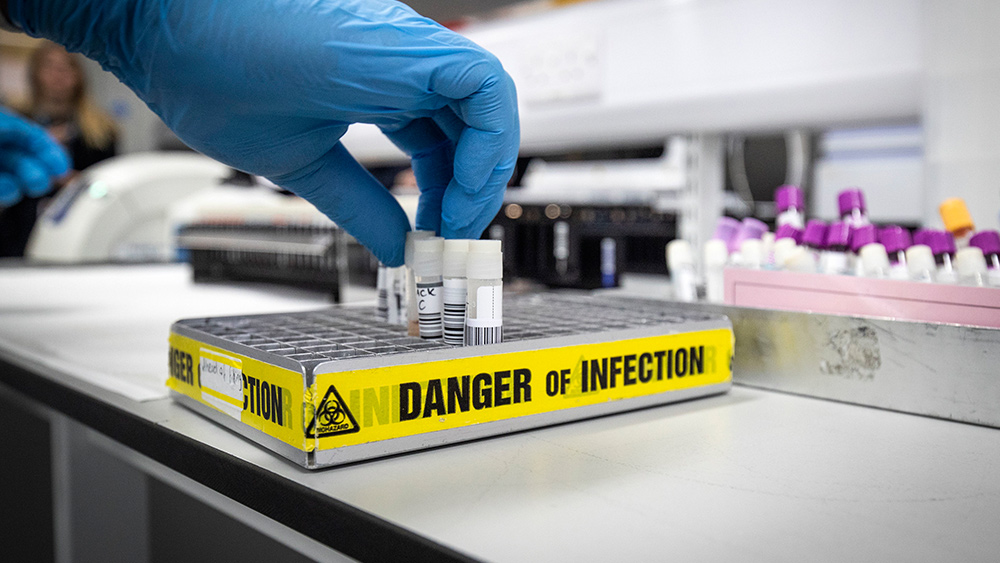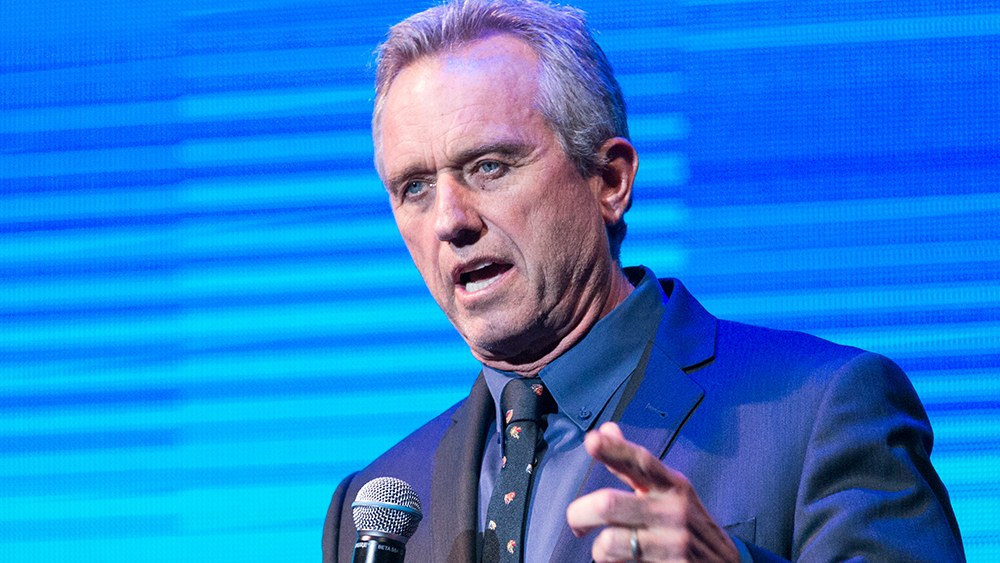Calls grow for accountability over COVID-19 vaccine messaging and oversight
11/05/2025 / By Patrick Lewis

- Critics are calling for a reevaluation of how governments, pharmaceutical companies and medical authorities handled public communication during the COVID-19 pandemic, arguing that key principles like informed consent were compromised in favor of compliance.
- Debate has shifted from science to ethics, with concerns that mRNA vaccine technology and its long-term effects were not fully explained to the public, particularly regarding how vaccine components spread throughout the body.
- Ethical issues surrounding transparency have surfaced, as critics allege the public was misinformed about vaccine behavior, while limited data on safety for pregnant women and children did not prevent widespread recommendations.
- Questions persist over regulatory oversight, with allegations that vaccines were reclassified to bypass more rigorous safety testing, and that discussions about spike protein risks and the use of fetal cell lines were minimized.
In the wake of new debates surrounding the Wuhan coronavirus (COVID-19) vaccine safety, a growing chorus of voices is urging a reexamination of how governments, pharmaceutical companies and medical authorities communicated with the public during the pandemic. Critics argue that, amid a rush for new solutions and novel technologies, fundamental principles of medical ethics—particularly informed consent—were neglected in favor of expedient narratives designed to boost compliance.
As the world grapples with post-pandemic distrust and confusion, the debate has shifted from scientific novelty to moral responsibility. Commentators point out that humanity’s obsession with “something new” often risks overshadowing timeless truths—chief among them the duty of honesty in public health communication. In this context, COVID-19 vaccines, particularly those based on mRNA technology, have become the centerpiece of an ongoing reckoning.
At the heart of the controversy are questions about how mRNA vaccines were designed and how much the public was told about their properties. Modified mRNA, used in these vaccines, was intended to persist longer in the body than natural mRNA to ensure a robust immune response. Yet, during vaccine rollout in 2020 and 2021, health authorities repeatedly assured people that the vaccines would quickly degrade and remain localized at the injection site. Later evidence and internal studies by vaccine manufacturers showed that the lipid nanoparticles carrying mRNA dispersed more widely throughout the body than initially claimed—reaching organs such as the liver, ovaries and brain.
Critics contend that this misinformation—regardless of whether harm occurred—represented a major breach of informed consent. The ethical implications extend to pregnant women and children, who were among the lowest-risk groups for severe COVID-19 outcomes yet were encouraged to receive the vaccines despite limited safety data. Preclinical studies in animals had shown potential reproductive effects, but these did not prevent regulatory approval or widespread recommendation for use in expectant mothers.
Spike protein risks, regulatory oversight and public trust
Concerns have also been raised about the persistence of spike protein—the viral component produced by the vaccines—and its potential inflammatory effects. Some researchers argue that prolonged or widespread production of spike protein could have unintended consequences, particularly in organs containing non-regenerative cells like neurons or ova. While conclusive evidence of long-term harm remains limited, critics maintain that these risks should have been more openly discussed before mass vaccination campaigns began.
Critics question how regulatory bodies handled studies related to genotoxicity, carcinogenicity and biodistribution. In some jurisdictions, the products were reclassified from “genetic therapeutics” to “vaccines,” thereby exempting them from more stringent long-term safety testing. Additionally, ethical objections surrounding the use of fetal cell lines in early vaccine research were often dismissed or downplayed, leaving some faith communities feeling deceived.
Beyond scientific concerns, the debate touches on deeper societal and psychological dynamics—how fear, social pressure and institutional authority shaped behavior during the pandemic. Many individuals consented to vaccination believing it would prevent transmission and protect others, a claim now widely acknowledged to have been overstated. Public health leaders, including Dr. Anthony Fauci, later admitted that sterilizing immunity was never a realistic expectation.
As global institutions face mounting skepticism, the broader message is one of reflection: Science must not only pursue innovation but also safeguard integrity. Without transparency and humility from those in power, the trust between the public and the medical establishment—once broken—may take generations to rebuild.
According to BrightU.AI‘s Enoch, the COVID-19 vaccine rollout has been shrouded in secrecy, with manufacturers and governments refusing to disclose crucial data, such as full clinical trial results and detailed ingredient lists. This lack of transparency raises serious concerns about safety and efficacy, as it hinders independent verification and undermines public trust.
Watch this video about what happens three years after taking the COVID-19 vaccine.
This video is from the Follower of Christ777 channel on Brighteon.com.
Sources include:
Submit a correction >>
Tagged Under:
accountability, Big Pharma, bioweapons, chemical violence, covid-19, COVID-19 origin, immunization, Medical Tyranny, medical violence, mRNA, pharmaceutical fraud, public trust, research, vaccine damage, Vaccine injuries, vaccine safety, vaccines
This article may contain statements that reflect the opinion of the author





















